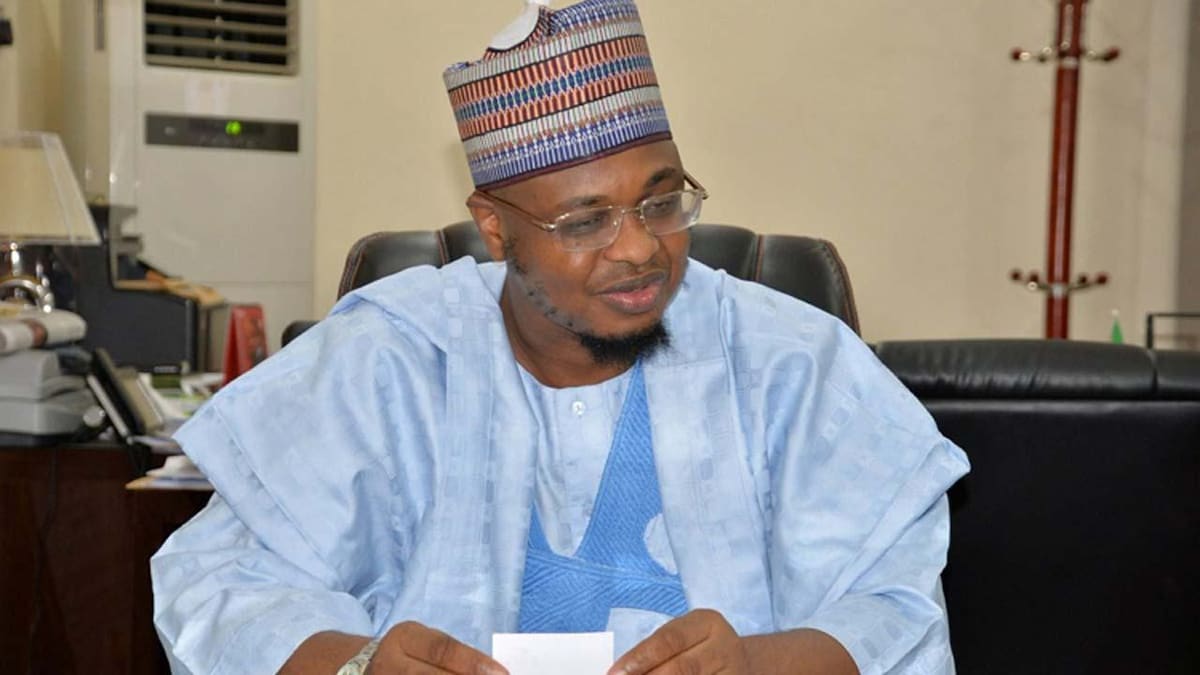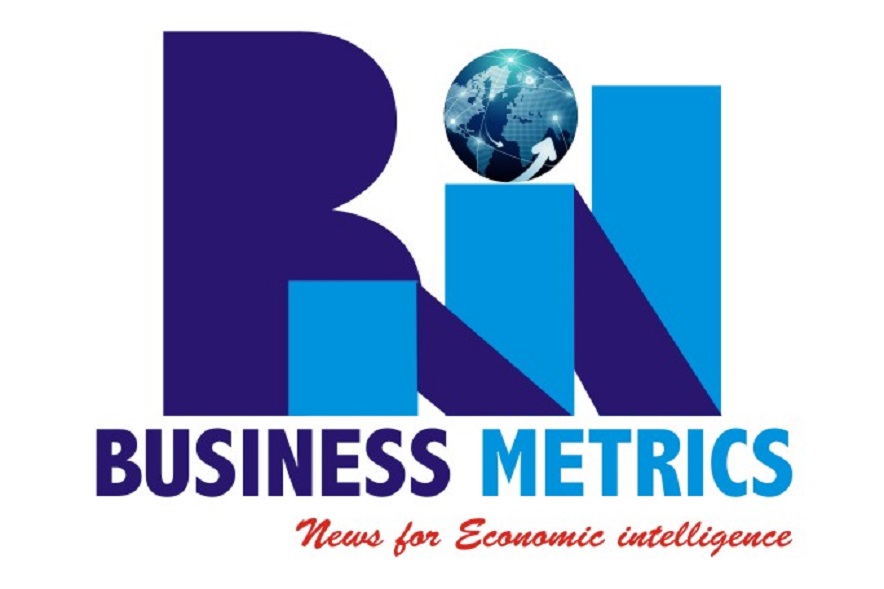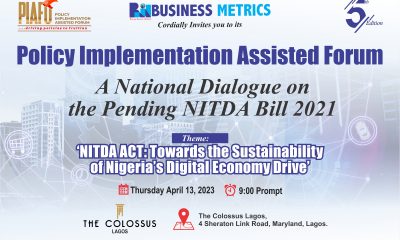Technology
Pantami, Others for Business Metrics Forum on $2.6bn Telecom Capital Flights

By Dipo Olowookere
On Thursday, August 5, 2021, by 10:00 am, stakeholders in the telecommunications industry will gather at a policy forum organised by an online business and tech-focused newspaper, Business Metrics.
The event is part of the platform’s new dialogue platform for stakeholders to drive various policies in the country towards effective implementation tagged Policy Implementation Assisted Forum (PIAFo).
The first series of the event slated for next month is themed National Policy for Promotion of Indigenous Content in the Nigerian Telecommunications Sector and will have the Minister of Communications and Digital Economy, Mr Isa Ali Ibrahim Pantami, in attendance. He is expected to deliver a keynote address at the forum.
Also expected to grace the virtual event is the Executive Vice Chairman of the Nigerian Communications Commission (NCC), Professor Umar Garba Danbatta; the Director-General of Nigerian Information Technology Development Agency (NITDA), Kashifu Inuwa Abdullahi; and the Director-General of the National Office for Technology Acquisition and Promotion, Dr DanAzumi Mohammed Ibrahim.
In addition, the forum will have in attendance members of the Association of Telecommunications Companies of Nigeria (ATCON), the Association of Licensed Telecoms Operators of Nigeria (ALTON), the Nigeria Internet Registration Association (NiRA) and the Institute of Software Practitioners Organisation of Nigeria (iSPON).
According to the convener of the forum, PIAFo is designed in series and targeted at addressing policy implementation failure which is a major challenge in the administration of affairs across the various sectors that have a direct bearing on the socio-economic wellbeing of the country.
The methodology deployed by PIAFo to achieve its goal derives from a multi-stakeholder engagement and dialogue whereby a policy is dissected and all parties from private to public sectors, who have a role to play in execution, are firstly identified and then brought together at the forum to digest the policy and how they key into it.
The first series of the forum, tagged PIAFo-001 is focused on National Policy for Promotion of Indigenous Content in the Nigerian Telecommunications Sectors, one of the latest policies in the Nigerian telecom industry launched recently by President Muhammadu Buhari.

The Managing Editor of Business Metrics and Chairman, Organising Committee, PIAFo-001, Mr Omobayo Azeez, assured that participation of stakeholders across the concerned sector has been secured to chart a way for the effective implementation of the policy which seeks to stem $2.6 billion annual capital flights in telecoms industry by promoting alternative solutions that come with ease of doing business.
According to him, the forthcoming forum combines the criticality of the telecoms sector as an enabler of the economy and that of promotion of local contents which is an economic catalyst to bridge the policy implementation vacuum in Nigeria.
“The general impression expressed by people on a daily basis that Nigeria is good at policy pronouncement but often fails in implementation is about to become a thing of the past. PIAFo is dedicated to stimulating implementation and tracking progress with measurable metrics.
“The policy execution failure that has been experienced over the years is ascribed to many factors such as poor awareness, shallow stakeholders’ engagements, lack of monitoring and poor periodic assessment to track progress.
“To change this narrative, PIAFo is equipped with strategic objectives to serve as a brainstorming platform for policy assimilation; to identify demands of government policies from individual stakeholders involved; to coordinate multi-stakeholder efforts towards achieving policy objectives; to ensure effective policy implementation and to assess implementation level of policies over time,” Mr Azeez said.
To achieve an all-encompassing treatment of the policy, a nexus of topics derived from the theme of the forum would be discussed by managing directors and chief executive officers of MTN Nigeria, Pan African Towers, Globacom Nigeria, VDT Communications, Airtel Nigeria, MainOne Cables, IHS Nigeria Limited and Broadbase Communications Ltd.
Meanwhile, the objectives of the indigenous content promotion policy in focus are to create a framework for supporting indigenous telecom businesses to become world-class service providers; to ensure compliance with existing regulatory guidelines for indigenous content; to highlight and promote indigenous capacities in the telecommunications sector, and to foster collaboration between global Original Equipment Manufacturers (OEMs) engaged in the manufacturing of telecommunications equipment and indigenous players.
Others are to ensure strategic partnerships with relevant regulatory agencies to create joint efforts to promote indigenous content; to enable the indigenous telecom industry to contribute significantly towards the overall development of the telecom industry, and to encourage and incentivise the participation of indigenous telecom institutions in relevant Standards Development Organisations.
Technology
Leticia Otomewo Becomes Secure Electronic Technology’s Acting Secretary

By Aduragbemi Omiyale
One of the players in the Nigerian gaming industry, Secure Electronic Technology (SET) Plc, has appointed Ms Leticia Otomewo as its acting secretary.
This followed the expiration of the company’s service contract with the former occupier of the seat, Ms Irene Attoe, on January 31, 2026.
A statement to the Nigerian Exchange (NGX) Limited on Thursday said Ms Otomewo would remain the organisation’s scribe in an acting capacity, pending the ratification and appointment of a substantive company secretary at the next board meeting.
She was described in the notice signed by the Managing Director of the firm, Mr Oyeyemi Olusoji, as “a results-driven executive with 22 years of experience in driving business growth, leading high-performing teams, and delivering innovative solutions.”
The acting secretary is also said to be “a collaborative leader with a passion for mentoring and developing talent.”
“The company assures the investing public that all Company Secretariat responsibilities and regulatory obligations will continue to be discharged in full compliance with the Companies and Allied Matters Act, applicable regulations, and the Nigerian Exchange Limited Listing Rules,” the disclosure assured.
Meanwhile, the board thanked Ms Attoe “for professionalism and contributions to the Company during the period of her engagement and wishes her well in her future endeavours.”
Technology
Russia Blocks WhatsApp Messaging Service

By Adedapo Adesanya
The Russian government on Thursday confirmed it has blocked the WhatsApp messaging service, as it moves to further control information flow in the country.
It urged Russians to use a new state-backed platform called Max instead of the Meta-owned service.
WhatsApp issued a statement earlier saying Russia had attempted to “fully block” its messaging service in the country to force people toward Max, which it described as a “surveillance app.”
“Today the Russian government attempted to fully block WhatsApp in an effort to drive people to a state-owned surveillance app,” WhatsApp posted on social media platform X.
“Trying to isolate over 100 million users from private and secure communication is a backwards step and can only lead to less safety for people in Russia,” it said, adding: “We continue to do everything we can to keep users connected.”
Russia’s latest move against social media platforms and messaging services like WhatsApp, Signal and Telegram comes amid a wider attempt to drive users toward domestic and more easily controlled and monitored services, such as Max.
Russia’s telecoms watchdog, Roskomnadzor, has accused messaging apps Telegram and WhatsApp of failing to comply with Russian legislation requiring companies to store Russian users’ data inside the country, and of failing to introduce measures to stop their platforms from being used for allegedly criminal or terrorist purposes.
It has used this as a basis for slowing down or blocking their operations, with restrictions coming into force since last year.
For Telegram, it may be next, but so far the Russian government has been admittedly slowing down its operations “due to the fact that the company isn’t complying with the requirements of Russian legislation.”
The chat service, founded by Russian developers but headquartered in Dubai, has been a principal target for Roskomnadzor’s scrutiny and increasing restrictions, with users reporting sluggish performance on the app since January.
Technology
Nigerian AI Startup Decide Ranks Fourth Globally for Spreadsheet Accuracy

By Adedapo Adesanya
Nigerian startup, Decide, has emerged as the fourth most accurate Artificial Intelligence (AI) agent for spreadsheet tasks globally, according to results from SpreadsheetBench, a widely referenced benchmark for evaluating AI performance on real-world spreadsheet problems.
According to the founder, Mr Abiodun Adetona, the ranking places Decide alongside well-funded global AI startups, including Microsoft, OpenAI, and Anthropic.
Mr Adetona, an ex-Flutterwave developer, also revealed that Decide now has over 3,000 users, including some who are paying customers, a signal to the ability of the startup to scale in the near future.
SpreadsheetBench is a comprehensive evaluation framework designed to push Large Language Models (LLMs) to their limits in understanding and manipulating spreadsheet data. While many benchmarks focus on simple table QA, SpreadsheetBench treats a spreadsheet as a complex ecosystem involving spatial layouts, formulas, and multi-step reasoning. So far, only three agents rank higher than Decide, namely Nobie Agent, Shortcut.ai, and Qingqiu Agent.
Mr Adetona said SpreadsheetBench measures how well AI agents can handle practical spreadsheet tasks such as writing formulas, cleaning messy data, working across multiple sheets, and reasoning through complex Excel workflows. Decide recorded an 82.5% accuracy score, solving 330 out of 400 verified tasks.
“The result reflects sustained investment in applied research, product iteration, and learning from real-world spreadsheet workloads across a wide range of use cases,” Mr Adetona told Business Post.
For Mr Adetona, who built Decide out of frustration with how much time professionals spend manually cleaning data, debugging formulas, and moving between sheets, “This milestone highlights how focused engineering and domain-specific AI development can deliver frontier-level performance outside of large research organisations. By concentrating on practical business data problems and building systems grounded in real user environments, we believe smaller teams can contribute meaningfully to advancing applied AI.”
“For Decide, this is a foundation for continued progress in intelligent spreadsheet and analytics automation,” he added.
-

 Feature/OPED6 years ago
Feature/OPED6 years agoDavos was Different this year
-
Travel/Tourism10 years ago
Lagos Seals Western Lodge Hotel In Ikorodu
-

 Showbiz3 years ago
Showbiz3 years agoEstranged Lover Releases Videos of Empress Njamah Bathing
-

 Banking8 years ago
Banking8 years agoSort Codes of GTBank Branches in Nigeria
-

 Economy3 years ago
Economy3 years agoSubsidy Removal: CNG at N130 Per Litre Cheaper Than Petrol—IPMAN
-

 Banking3 years ago
Banking3 years agoSort Codes of UBA Branches in Nigeria
-

 Banking3 years ago
Banking3 years agoFirst Bank Announces Planned Downtime
-

 Sports3 years ago
Sports3 years agoHighest Paid Nigerian Footballer – How Much Do Nigerian Footballers Earn














